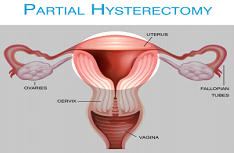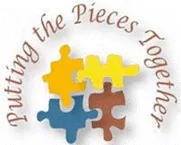How Our Hormones Affect Us

How Our Hormones Can Affect Us
Pam, 52, was diagnosed Bi-polar twenty years ago. She was on several medications including Lithium. Though she owned a successful business, she could no longer manage it and turned the reins over to her husband, who she was considering divorcing. She had gained 20 pounds, lacked motivation and energy, had no sex drive in years, and became pretty much a hermit. She would decline any invitations to hang-out with friends. She knew the medication she was on was not helping, but she was also afraid to get off any of them.

When I asked her what her counseling goals were, she said, “I just want to get my life back.”
Finding more about Pam’s history, she had a partial hysterectomy (uterus only) removed in her early thirty’s. It was never suggested she get hormone therapy because her doctor said they had not removed her ovaries. Rarely do doctors check hormone levels later to determine whether the ovaries still produce optimal hormone levels. They just assume the ovaries continue to work fine after the uterus is removed. Pam never had blood work taken to see where her hormone levels were, namely Estradiol. So she never gave it a second thought or connected the dots.

Pam was never told that a hysterectomy without removal of the ovaries interrupts ovarian blood flow and affects her hormone levels. In her book, IT’S My Ovaries, Stupid, Dr. Elizabeth Vliet states,
“Since the early 1970’s, studies have shown that after hysterectomy premature hormone loss is far more common than we thought, even though the ovaries were left in place. Dr. John Studd, an internationally known menopause researcher from London, is a strong advocate for follow up test of women’s hormone levels after a hysterectomy when ovaries are left intact. Depression following hysterectomy is assumed to be a psychological reaction to losing the uterus. Dr. Studd’s view is that the more plausible cause of depression is the varying degree of ovarian hormone deficiency which is often overlooked and misdiagnosed."
Dr. Vliet agrees and says that her clinical experience clearly shows that depressed moods, low energy, sleep loss, anxiety, and loss of libido are alleviated with good hormone management.
I suggested to Pam that she get the book, It’s My Ovaries Stupid! and referred her to a doctor who “gets it.” It’s extremely important women educate themselves in this area. They need to become their own advocate since many doctors are not educated in hormone therapy.

Pam’s blood Estradiol (main estrogen) level came back at 16pg/mL… nearly non-existent. Optimal levels for health benefits is between 75-110pg/mL. The doctor started Pam on the Vivelle Patch, which is 17-Beta Estradiol, matching the molecular structure our body makes. Within days Pam started feeling better. She couldn’t believe it. Within a month, she had gotten off all meds except a low dose of Wellbutrin, which she was weaning herself from. She started wearing make-up and going into work a couple days a week. Her sense of humor was coming back and our sessions were very positive for both of us, aside from some anger she was feeling for being misdiagnosed and treated.
Toward the end of our time together… which was about 3 months… Pam came into my office with a smile. She said she was pulling into her driveway after going to the grocery store and her husband was trimming shrubs in front of the house. She said her first thought was, “he had a good butt.” We cracked up laughing, because I had warned her that her libido might kick in and she was dismissive of the idea. Not any longer… and Pam remains married to the husband with the “good butt.”
For a long time it was believed that estrogen was solely a reproductive hormone, affecting only the female organs. But today we know that there’s an estrogen presence is the brain cells, bone cells, heart cells, and blood vessel cells, to name just a few. Estrogen receptors have been found in the skin, liver – in fact, all over a woman’s body… as in testosterone for a man.
 THE BANDAIDE APPROACH
THE BANDAIDE APPROACH
- Doctors have been forced to focus simply on established protocols and standard approaches
- Migraine headaches? Take Imitrex.
- Insomnia? Take Ambien.
- Depressed mood? Take Prozac.
- PMS? Take Zoloft.
- Bone Loss? Take Fosomax
- No Libido? Take Viagra
- High Blood Pressure? Take any of the antihypertensive pills
- High Cholesterol? Take Lipitor
They focus on separate causes and diagnoses rather than finding a unifying explanation. As a result, they miss the fact that underlying all these seemingly disparate problems could be HORMONES… or lack of.
It takes creative thinking, sometimes “outside the box,” to connect the dots between various research findings in a variety of specialty fields with how the body works, patterns of symptoms, lab results, and what to do to solve clinical problems. It takes time and patience, something many doctors don’t have.
The moral of the story… I have helped many women, even save their marriages, by educating them about hormones and the affect they have in our life… from BC pills, PMS, tubaligations, perimenopause, and menopause. Our hormones affect all of us at all ages, men as well. There is not gender discrimination with hormones.

Visit my Hormone Page on my website for further information.


